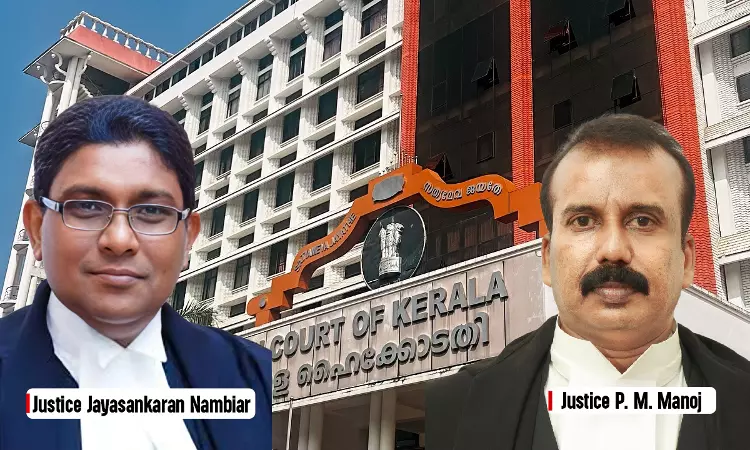- Home
- /
- High Courts
- /
- Kerala High Court
- /
- Luxury Tax U/S 5A Of Kerala...
Luxury Tax U/S 5A Of Kerala Building Tax Act Is Constitutionally Valid, However, Demand Beyond 3 Years Is Unsustainable: Kerala High Court
Mehak Dhiman
1 July 2025 6:15 PM IST
The Kerala High Court stated that luxury tax under Section 5A Of Kerala Building Tax Act is constitutionally valid post 101st Amendment to the Constitution but a demand that extends to more than three years prior to the date of the demand notice cannot be legally sustained. Justices A.K. Jayasankaran Nambiar and P.M. Manoj opined that “Entry 49 of List II of the 7th Schedule to...
The Kerala High Court stated that luxury tax under Section 5A Of Kerala Building Tax Act is constitutionally valid post 101st Amendment to the Constitution but a demand that extends to more than three years prior to the date of the demand notice cannot be legally sustained.
Justices A.K. Jayasankaran Nambiar and P.M. Manoj opined that “Entry 49 of List II of the 7th Schedule to the Constitution deals with 'taxes on lands and buildings' and so long as the charge under Section 5A of the Kerala Building Tax Act can be traced to the power of the State Legislature under Article 246 r/w Entry 49 of the List II of 7th Schedule to the Constitution, the argument against legislative competitiveness must necessarily fail.”
In this case, assessee/appellant is the owner of a residential building. He was aggrieved by the demand notice that sought to recover luxury tax as per the provisions of Section 5A of the Kerala Building Tax Act, 1975 for the assessment years from 2007-2008 to 2020-2021.
The demand notice was apparently the first demand notice served on the assessee demanding luxury tax. The challenge in the Writ Petition was essentially against the validity of Section 5A of the Kerala Building Tax Act, and the relief prayed for in the Writ Petition was for a declaration that Section 5A of the Kerala Building Tax Act was ultra vires, illegal unconstitutional and void.
The assessee submitted that since the 101st amendment to the Constitution had amended Entry 62 of List II of the 7th Schedule to the Constitution of India, by excluding the entry regarding taxes on luxuries, the State Legislature was denuded of the power to levy luxury tax thereafter, and hence there could not have been a levy or collection of luxury tax in terms of Section 5A of the Kerala Building Tax Act from the assessee.
The Single Judge found that merely because the 101st amendment to the Constitution had amended Entry 62 of List II of the 7th Schedule to the Constitution, it did not follow that the legislative competence to levy a tax of the nature envisaged under Section 5A of the Kerala Building Tax Act was taken away.
The bench opined that the mere fact that Entry 62 of List II in the 7th Schedule to the Constitution of India had been amended to take away the field of 'taxes on luxuries' from the ambit of legislative competence of the State Legislature, it did not necessarily follow that the levy of tax under Section 5A of the Kerala Building Tax Act was unconstitutional.
“Under Section 5A of the Kerala Building Tax Act, the charge of luxury tax is on an annual basis at the rate specified under the provision. It would follow, therefore, that even in the absence of any express period of limitation prescribed for the recovery of unpaid taxes, a reasonable period of limitation has to be read in to check the actions of the taxing authorities,” stated the bench.
The bench after taking note of the scheme of the levy of tax under the Act, opined that a demand that extends to more than three years prior to the date of the demand notice cannot be legally sustained.
In view of the above, the bench partly allowed the appeal and set aside the demand notice to the extent it pertains to a demand for the assessment years from 2007-2008 to 2015-2016.
Case Title: Ison George v. State of Kerala
Case Number: WA NO. 753 OF 2020
Citation: 2025 LiveLaw (Ker) 375
Counsel for Appellant/ Assessee: Raju K. Mathews
Counsel for Respondent/ Department: V K Shamsudheen



